Search Results
Showing results 21 to 40 of 183
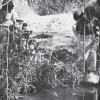
Crawdad Grab
Source Institutions
In this outdoor, freshwater activity, learners explore the behavior and food preferences of crawdads (or crabs) by "fishing" for them with various baits.
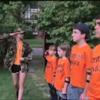
Exercise and Memory
Source Institutions
This activity (page 1 of the PDF under SciGirls Activity: Exercise and Memory) is a full inquiry investigation into the effects of exercise on short term memory.
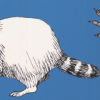
Who Goes There?
Source Institutions
In this outdoor, night activity, learners track nocturnal animals' footprints, droppings and other signs of their presence.

Do Your Own Dig
Source Institutions
In this outdoor archaeology activity, learners use mathematical skills and scientific inquiry to generate and process information from their own excavation site.
Pace-Off!
Source Institutions
In this math activity, learners use non-standard measurement (paces) to find the distance from one point to another. Learners practice estimating and measuring distances .
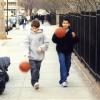
Mega Bounce
Source Institutions
In this outdoor activity (on page 2 of the PDF under GPS: Baseball Activity), learners will investigate the transfer of energy using sports equipment.

As Straight as a Pole
Source Institutions
In this engineering activity (page 3 of PDF), young learners investigate how a pole can be made stable by “planting” its base in the ground or adding supports to the base.

Relative Speed of Dinosaurs
Source Institutions
In this activity, learners interpret three trackways and use measurements and a formula to infer the relative speed of dinosaurs.

Terrestrial Hi-Lo Hunt
Source Institutions
In this outdoor activity, learners search for the warmest and coolest, windiest and calmest, wettest and driest, and brightest and darkest spots in an area.

Sensory Hi-Lo Hunt
Source Institutions
In this outdoor activity, learners use only their senses to to find the extremes of several environmental variables or physical factors: wind, temperature, light, slope and moisture.
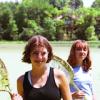
Malformed Frogs
Source Institutions
This activity (on page 2 of the PDF under SciGirls Activity: Malformed Frogs) is a full inquiry investigation into using indicator species to assess the health of an environment.
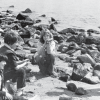
Beachcombing
Source Institutions
In this outdoor activity, learners become beachcombers as they walk on a sandy beach in search of evidence of life.
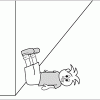
Space Stations: Measure Up!
Source Institutions
In this activity, learners work in pairs to measure each other's ankles with lengths of string.
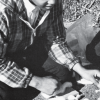
Food Grab
Source Institutions
In this outdoor activity, learners design devices that will catch prey or gather plants.

Hopper Herding
Source Institutions
In this outdoor activity and game, learners roundup a "herd" of hopping insects and find out how many different kinds or species are in their herd.

Olympic Track Meet
Source Institutions
In this activity, learners discover how exercise helps keep the body healthy. Learners increase their heart rates by running and understand how running fast versus walking affects their pulse rates.
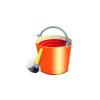
Sunny Day Painting
Source Institutions
In this activity, learners explore properties of water and watch evaporation happen by "painting" with water in the sun.
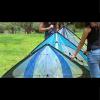
Kites
Source Institutions
This activity (on page 2 of the PDF under SciGirls Activity: Kites) is a full inquiry investigation into how a kite’s shape affects its performance.
Up, Up and Away with Bottles
Source Institutions
In this activity, learners make water rockets to explore Newton's Third Law of Motion. Learners make the rockets out of plastic bottles and use a bicycle pump to pump them with air.
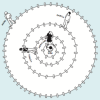
Human-powered Orrery
Source Institutions
In this space science activity, learners work together to create a human-powered orrery to model the movements of the four inner planets.
